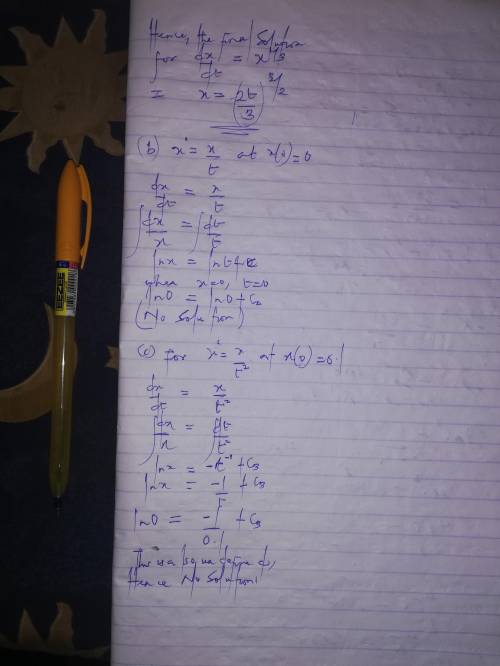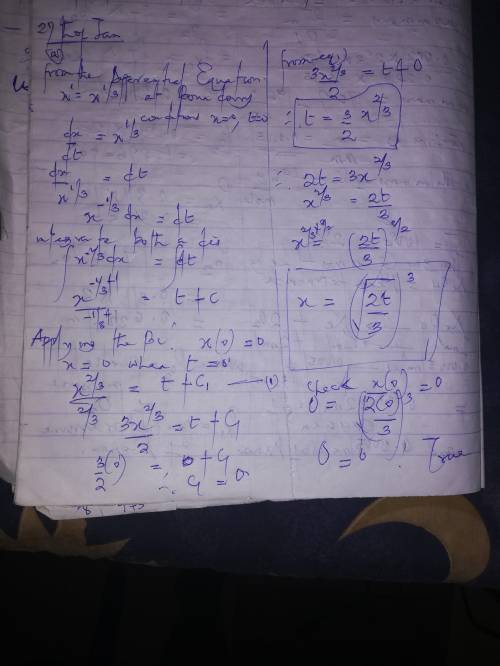
Mathematics, 25.01.2020 02:31 twirlergirl800
First-order differential equations need not have unique solutions satisfying a given initial condition.
(a) prove that there are infinitely many different solutions of the differential equations x' = x^1/3 satisfying x(0) = 0.
(b) discuss the corresponding situation that occurs for x' = x/t, x(0) = x0. (c) discuss the situation that occurs for x' = x/t^2, x(0) = 0. 1

Answers: 3


Another question on Mathematics

Mathematics, 21.06.2019 14:30
The last time i bought this product , it cost $20.00 but it looks like it cost 29. 60 today? what is the increase
Answers: 2


Mathematics, 21.06.2019 17:30
Can someone me with this problem i don't understand i need
Answers: 2

Mathematics, 21.06.2019 20:10
Read the excerpt from the strange case of dr jekyll and mr. hyde what do dr. jekyll's thoughts reveal about him in this excerpt? [t]he inmates of my house were locked in the most rigorous hours of slumber, and i determined, flushed as i was with hope and triumph, to venture in my new shape as far as to my bedroom. i crossed the yard, wherein the constellations looked down upon me, i could have thought, with wonder, the first creature of that sort that their unsleeping vigilance had yet disclosed to he is jealous of those who can sleep through the night. he is revered for his scientific advances. he is interested in studying the movements of the stars he is proud and enthusiastic about his initial results.
Answers: 3
You know the right answer?
First-order differential equations need not have unique solutions satisfying a given initial conditi...
Questions







Mathematics, 20.12.2019 10:31

Mathematics, 20.12.2019 10:31


History, 20.12.2019 10:31


Mathematics, 20.12.2019 10:31


Mathematics, 20.12.2019 10:31

Mathematics, 20.12.2019 10:31



Social Studies, 20.12.2019 10:31

English, 20.12.2019 10:31

English, 20.12.2019 10:31





